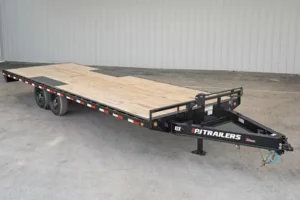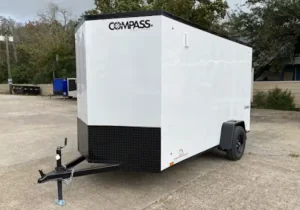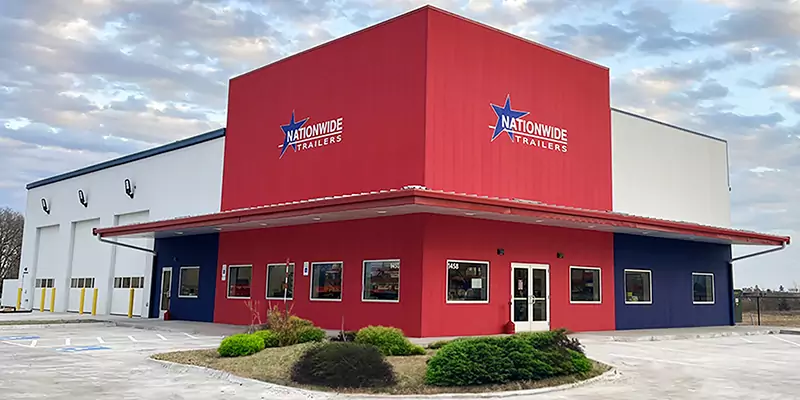
When it comes to towing, having the right trailer hitch can make all the difference. Whether you’re hauling a gooseneck trailer for a cross-country move or a utility trailer for weekend projects, a reliable hitch will ensure a smooth and safe ride. Understanding the options available for different vehicle types is crucial for anyone eager to tow with ease and confidence. In this guide, we’ll explore the various trailer hitch options, evaluate their advantages and disadvantages, and help you find the perfect fit for your vehicle.
Understanding the Need for a Reliable Trailer Hitch
Towing isn’t just about hooking up a trailer and hitting the road. A solid, dependable trailer hitch is fundamental to safe towing and efficient handling of diverse loads. For vehicle owners, understanding the importance of a reliable hitch is the first step toward successful towing.
A dependable hitch provides stability and control, ensuring that your trailer doesn’t sway or cause your vehicle to veer off course. Whether you’re towing a heavy gooseneck trailer or a lightweight utility trailer, the right hitch can help you maintain control even in challenging driving conditions.
Exploring Different Types of Trailer Hitches
The world of trailer hitches offers a variety of options, each designed for specific needs and vehicle types. Knowing the different types of hitches available can help you make an informed decision for your towing requirements.
Weight Distribution Hitches
Weight distribution hitches are ideal for towing heavier trailers like travel trailers or larger utility trailers. They use spring bars to distribute weight across the vehicle and trailer, promoting stability and reducing the risk of sway.
While these hitches provide excellent control and handling, they can be complex to set up and adjust. They are best suited for vehicles with substantial towing capacity, such as trucks and SUVs.
Gooseneck Hitches
Gooseneck hitches are a popular choice for heavy-duty towing, particularly with gooseneck trailers. They mount in the truck bed, allowing for tight turns and improved stability. This makes them a favorite among those towing livestock trailers or fifth-wheel RVs.
However, gooseneck hitches require a truck bed for installation, limiting their use to pickups. Their installation can also be more invasive, requiring modifications to the truck bed.
Rapid Hitches
Rapid hitches offer versatility and convenience for those needing to switch between different trailers frequently. They are adjustable, allowing you to alter the height and ball size based on the trailer.
While rapid hitches are convenient, they may not offer the same level of stability as specialized hitches. They are best for light to medium loads and are well-suited to smaller utility trailers.
Finding the Best Trailer Hitch for Trucks
Trucks are often the go-to choice for towing, thanks to their power and durability. Selecting the right trailer hitch for your truck involves considering the size of your vehicle, the type of trailer, and your towing needs.
Trucks with higher towing capacities can accommodate gooseneck hitches, ideal for heavy-duty tasks. If you’re towing a gooseneck trailer, this option offers the best stability and control, making it a top choice for serious haulers.
For lighter loads or more versatile needs, a rapid hitch may be more suitable. It allows you to adjust the hitch height easily, making it convenient for frequent changes between trailers. Just ensure it’s rated for the weight you intend to tow.
Choosing the Right Hitch for SUVs
SUVs offer a balance between comfort and towing capacity, making them a popular choice for families and adventurers alike. Finding the right trailer hitch for an SUV involves matching the hitch to both the vehicle’s capabilities and your towing plans.
For medium to heavy loads, such as a large utility trailer or a small camper, a weight distribution hitch is often the best choice. It can compensate for the lower hitch weight of SUVs, providing added stability and safety.
If your towing needs are lighter, such as a small utility trailer, a basic ball mount hitch may suffice. Ensure it’s compatible with the vehicle’s towing capacity to avoid potential issues on the road.
Selecting the Appropriate Hitch for Sedans
Sedans aren’t typically associated with towing, but they can handle smaller trailers with the right hitch. When selecting a trailer hitch for a sedan, focus on weight and compatibility to ensure a safe towing experience.
For sedans, a simple ball mount hitch is usually sufficient for small loads, like a single-axle utility trailer or bike rack. Ensure the trailer’s weight is within the sedan’s towing capacity to prevent strain on the vehicle.
Avoid heavy-duty hitches, as sedans generally lack the power and suspension to tow large loads safely. Always refer to the owner’s manual for guidance on suitable hitch types and towing limits.
Key Considerations for Trailer Hitch Installation
Installing a trailer hitch is a crucial step in the towing process, and doing it correctly is essential for safety and performance. Here are some factors to keep in mind when installing your new hitch.
Firstly, consider whether professional installation is necessary. While some hitches are simple enough for DIY installation, others, particularly gooseneck hitches, may require professional expertise to ensure proper fitting. Ensure the hitch is compatible with your vehicle’s make and model. This includes checking the vehicle’s towing capacity and the hitch’s weight rating to guarantee a safe towing experience.
Finally, don’t forget to maintain your hitch regularly. Inspect it for signs of wear and tear, rust, or damage, and address any issues promptly to avoid accidents on the road.
Conclusion
Choosing the right trailer hitch is more than just a practical decision—it’s vital to ensuring safety and efficiency in your towing endeavors. By understanding the different hitch types, their advantages and disadvantages, and their compatibility with various vehicle types, you’ll be well-equipped to make an informed choice.
Whether you’re towing a gooseneck trailer with a powerful truck or a lightweight utility trailer with a sedan, the right hitch will provide the control and stability needed for a successful trip. We invite you to share your towing stories, tips, and experiences in the comments below to enrich our community’s knowledge.
And remember, if you’re still unsure which trailer hitch is best for your vehicle, feel free to check out Nationwide Trailers for expert advice and guidance. Happy towing!




